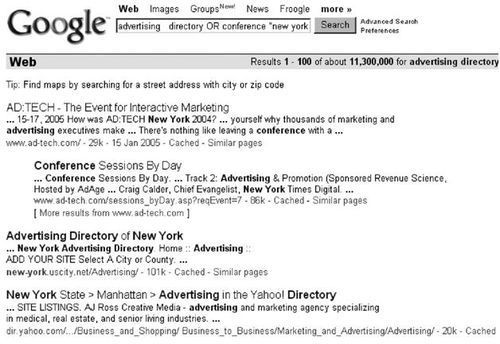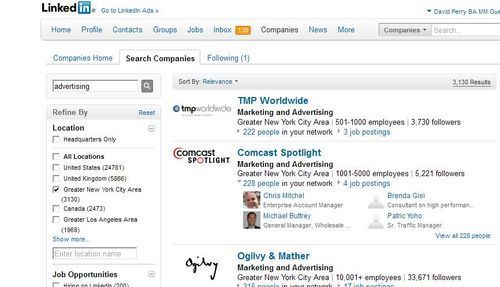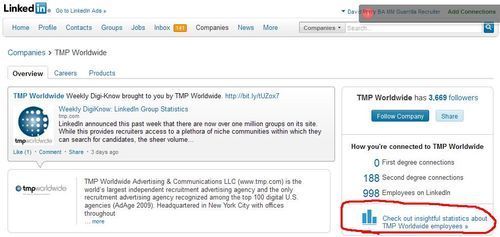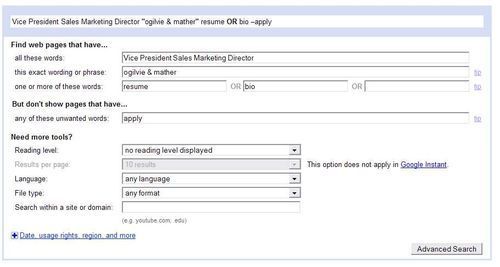David E. Perry's Blog, page 14
November 27, 2011
Reason # 3 You Inc. - Top 10 Reasons Occupy Wall Street Protestors Can't Find a Job
More than ever in our history, huge value is being leveraged from smart ideas – and the winning technology and business models they create. In the years to come, as companies strive to hire fewer but better people, employers will try harder than they ever have to attract and retain smart, boldly entrepreneurial overachievers.
In the new world of work, value is NOT salary—not for the employer, not for you. With millions of dollars in revenue at stake, an employer's search for an employee will be value-focused, not salary-driven.
As a job-hunter you need to thoroughly comprehend that the production of "VALUE" is the  most important criteria for an employer when hiring. Articulating your VALUE is your key to successful job-hunting; it separates you from ALL the other job-hunters. Understand, VALUE is not salary; worth does not flow from a job title. Knowing what's important to a company means looking beyond job descriptions and compensation tables, especially today when sudden changes and uncertainty are the norm.
most important criteria for an employer when hiring. Articulating your VALUE is your key to successful job-hunting; it separates you from ALL the other job-hunters. Understand, VALUE is not salary; worth does not flow from a job title. Knowing what's important to a company means looking beyond job descriptions and compensation tables, especially today when sudden changes and uncertainty are the norm.
You need to comprehend:
What 'VALUE" a company is looking for from an employee's contribution.
How you communicate your VALUE to an employer.
Especially for management and senior positions - BUT REALLY FOR EVERYONE THESE DAYS - companies aren't looking to fill in a check box on a standard employee recruitment form.
Companies are looking for something more nebulous, and more important. They are looking for a person who can deliver a QUALITY, not a quantity, someone who can explode out from an open-ended initiative-driven space.
Qualities are difficult to find, measure or test, and you don't find these qualities by searching for specific salary levels—the qualities that make up the new Value Table are money-resistant. The New Value Table goes beyond skill sets and resumes, as I first explained in Career Guide for the High-tech Professional: Where the Jobs are Now and How to Land Them. [Career Press 2004].
New VALUE Table™
An Employer's Value Requirements
Your Quality That Counts
Create new intellectual wealth for my company; add to my intellectual assets.
A consuming desire to make something new; to cut a new path rather than take a road.
High-energy enthusiasm for the job, regardless of the hours worked.
Work is a game -- an integral, vibrant part of his or her life.
Not only is money not the most important issue - it's beside the point.
Internal pride to leave a "legacy signature" on their work, rather than strive for a paycheque.
Enduring performance.
An ability to stay and finish the race, because not finishing is inconceivable emotionally.
"Think around corners" to solve problems creatively.
Have an inner voice saying "There's always a way [to create a technology fix: make a deal]".
Bring up-to-date professionalism into every fray.
Contain a desire to grow professionally -- to become the best person he or she can be: invest in themselves.
Ever-increasing contribution.
The key to inner pleasure is recognized as making an individual contribution.
Identify and develop values for your company.
Instinctive grasp and exploitation of today's real value: the intangible capital of brand image, staff talent, and customer relationships.
Challenge the status quo
Willingness and courage to speak the truth when you see a conflict.
In its simplest form, The New Value Table represents the base elements of your personal "Brand". Building your brand - making a "name for yourself" that distinguishes you from competitors need not be expensive.
Personal branding isn't about projecting a fake image.
It's about understanding what's unique about you – your accomplishments experience, attitude - and using that to differentiate yourself from other job-hunters. Your brand is your edge. Allow me to explain.
Do you buy generic beer, clothes cars? Do you buy any no-name large ticket items at all? Not likely! If you're like most people who are about to spend serious money on something which could have long lasting or far reaching consequences, you buy a brand because of the security and peace-of-mind that come from buying the quality and reliability of a known brand. Employers do the exact same thing when they hire people.
Personal branding is critical for Guerrilla Marketers because:
♦ Employers are looking for results.
♦ Your results demonstrate Your qualities, which satisfy an employer's Value Requirements.
♦ Employers won't buy generic beer, or employees.
♦ Employers will buy the intangible qualities implied by your brand (you are like Nike too).
How to create your brand for FREE
Personal Branding is about making yourself stand out so that people trust you and are interested in you. YOu can do this by leveraging your previous employers' Brand (names, slogans, and logos) to create an identity that is memorable and desirable to the people they want to reach.
For your cover letter this means name-dropping which projects you worked on or which clients you sold to. Be specific. Be detailed. Sell the sizzle AND the steak.
For your resume it may mean taking the logos (with permission of course) of the companies you worked for or product you developed and placing them on your resume for extra punch. Nothing will get an employer's attention faster than a well-known brand's logo, especially if it's a competitor or a coveted account they want.
What would make your reader take notice of you? Could it be your training at another company? Might it be the companies you have sold to? Where you responsible for a major product which the employer might recognize? There are likely thousands of images you could use. You only want to put in five so choose the five your reader is most likely to be interested in. Putting in more than five makes It too crowded.
Here is a list of possible suggestions:
Your Position sought
Your Reader's Interest
Suggested graphics
Sales
Who have you sold to. Are there any major accounts you know they would like to have or would recognize as difficult to get that would make you look like a "super-star"?
Logos of the companies you have worked for or the major customers you have sold. Perhaps a product you sold if it's more recognizable than the company's logo.
Engineering
Who have you worked for? What major product where you part of designing?
Logos of your employers or customers. A logo or snap shot of the product you designed.
Marketing
What brands have you helped create? Where have you gotten press coverage for your products? What trade shows have you worked?
Logos of your employers. Logos of the newspapers or magazines you have had coverage in. Media quotes you were responsible for.
Finance
Have you done an IPO on NASDAQ? Have you secured funding from a major Venture Capital firm?
Logos of your employers or significant partners you have negotiated with.
Administration
How have you increased efficiencies?
Logos of your employers.
You can leverage your brand through the clever design of your resume and cover letter - just use these tools to do your research and then tell them what you know they want to hear.
*********************************************
Top 10 Reasons Occupy Wall Street Protestors Can't Find a Job
# 10 – You're Gulliable
# 9 – You're Invissible
# 8 – You're Irrelevant
# 7 - You Network Like a Girl!
# 6 - Your Resume is Ugly
# 5 – Your Cover Letter is Boring…
#4 - You Don't Know What to do When a Recruiter Calls
# 4 - Top 10 Reasons Occupy Wall Street Protestors Can't Find a Job
Here's what to do if a recruiter calls you at work.
Be flattered. If a recruiter calls you in most cases the recruiter's team has prequalified you. Don't ask them where they got your name right away. There's time enough for that later. 
Take the call only if you can speak without whispering. If you can't talk freely, ask for their phone number and a convenient time to call back. Better you say nothing than blow the call. This also gives you an opportunity to look up the recruiter's firm to make sure the call is legit. Take a minute to first read their web site to see if they normally recruit people like you. Can't find their site? That's an early warning sign. Check if they using a Yahoo, Hotmail, Gmail or other generic account. Yes? Be careful. It may be a ruse from your employer trying to cull the ranks for deserters, ahead of an upcoming layoff. If they send an unsolicited email to your work address respond that you're not interested because employers can legally monitor your email. Then send a follow up email from your hotmail account.
Ask the recruiter the following questions. Do not deviate from this exact sequence. Get it out of order and you won't get the right answers – recruiters are some of the savviest business people on the planet.
Are you on retainer or contingency?
WHAT YOU SHOULD UNDERSTAND – You want to know how the recruiter is being compensated -- retainer or contingency. Learning this can tell you if the project is real or if they're fishing. It may also tell you how quickly you have to decide whether you are interested in being considered. If the recruiter is on retainer the project is real. Go forward. You have time to consider your options.
If the firm is on contingency the recruiter is likely under the gun to close the project before another firm does. Time is of the essence. You must move quickly if you are interested. First, I suggest you ask the following:
Do you have an exclusive?
WHAT YOU SHOULD UNDERSTAND – If they have an exclusive it means that they are the only firm working on the assignment. Listen to the recruiter describe the opportunity and decide if you want to go forward. If they don't have an exclusive they are competing with other firms and possibly even the employer's own internal human resource people.
Have you successfully placed people with this hiring manager before?
WHAT YOU SHOULD UNDERSTAND - It pays to be cautious. You need to decide if the recruiter has the capacity to represent you and get you an interview. From the moment they forward your resume to the employer, the recruiter is entitled to be paid their full fee [for a period as long as a year or more] should that employer hire you, regardless. Understand, even if you were to land an interview on your own during that period – the employer would need to pay the recruiter's fee, even if it was for a different job in a different department or division. "Hold on", you say, I don't even know who the employer is!" Too bad. That's the Catch-22. It's your responsibility to get as much information as you can and make an informed decision to forward your resume to the recruiter.
Have you vetted the job description with the client, and may I have a copy?
WHAT YOU SHOULD UNDERSTAND - If they haven't met with the client or vetted the job description with the client, it's not ideal for you, but it's not necessarily the end either.  Ask for a written copy of the job description. Read it carefully and ask the recruiter as many questions as they'll allow. And make an informed decision to proceed. Should the recruiter refuse [rare] I advise my closest friends to terminate the call – yes I have a few friends... The recruiter is just looking to fill his database of candidates. He/she may be performing business development and wants some new resumes to introduce himself to prospective companies.
Ask for a written copy of the job description. Read it carefully and ask the recruiter as many questions as they'll allow. And make an informed decision to proceed. Should the recruiter refuse [rare] I advise my closest friends to terminate the call – yes I have a few friends... The recruiter is just looking to fill his database of candidates. He/she may be performing business development and wants some new resumes to introduce himself to prospective companies.
Recruiting Industry revenues are in the $100's of Billions globally - with almost 50% in North America. Recruiters can accelerate your career and help you find a grat job faster than the average 39 weeks in now takes in America - but only if yoiu understand how to work with them and what some of the potholes are.
*****************************************
Top 10 Reasons the Occupy Wall Street Protestors Can't Find a Job
# 10 – You're Gulliable
# 9 – You're Invissible
# 8 – You're Irrelevant
# 7 - You Network Like a Girl!
# 6 - Your Resume is Ugly
# 5 – Your Cover Letter is Boring…
November 22, 2011
SKILLS THAT WON'T BE OFFSHORED
With a radically smaller pool of skilled workers and the increased demand for profits, the original War for Talent of the late 1990s has morphed from a quantitative to a qualitative one, best described as the War for the Best Talent by authorPeter Weddle in Generalship: HR Leadership in a Time of War (Stamford, CT: Weddle's, 2004). The old "bums on seats" mentality of many employers is quickly being replaced by "brains on seats."
Faced with stiffer competition and tougher hiring requirements, companies of every sort are becoming single-minded about productivity and bottom-line performance. Consequently, competition for jobs is increasing as management seeks and hires only those persons who appear to have the most potential for helping to boost the company's profits. For many companies, employees are now viewed as a variable cost—hence the term human capital—to remain "on the books" only as long as they continue to produce. Looking for an old-fashioned job like the one "Dad used to have" is a waste of your time— Jobs are temporary in the new economy—henceforth you always need to be looking for the next opportunity.
Compliments of David E Perry and Kevin Donlin. For more creative job search tactics, go to the Guerrilla Marketing for job hunters blog and download the free audio CD.
November 21, 2011
Top 10 Reasons Occupy Wall Street Protestors Can't Find A Job: Your Cover Letter is Boring...
YOu can't bore someone in to hiring you. So Don't Send a Cover Letter
As a rule, I hate reading cover letters. Nearly all are what I call, 3B: Bland, Boring and Banal.
In fact, most cover letters are such formulaic exercises in boredom that I suggest you stop sending them altogether.
That's right. Don't send a cover letter. Send a sales letter instead. 
After all, your goal in writing to employers is to "sell" them on hiring you, right?
With that in mind, here's a recent success story - vcompliments of Kevin Donlin - that will help you stop sending cover letters, and start sending sales letters that get job interviews.
Paul D. from White Bear Lake, MN writes:
"I met you at the Star Tribune job expo and I wanted to comment on your tip to write a sales letter rather than a cover letter. I took your advice and, after sending the new cover letter to apply for two jobs online, I had one call the same day for an interview! The other call came the day after."
So, Paul batted 1000 with the two cover letters he sent out. Better yet, he emailed me his cover letter, which offers three lessons that can get you hired …
1) Get Attention by Asking a Question
You must get employers' attention at the start of your letter and compel them to read. Otherwise, your letter won't have any effect. Because bored readers will skim over the document, then rush off to your résumé.
An easy way to get attention is to ask a question. Why? Questions are hard to ignore -- they engage and involve readers.
This is what I suggested at the job search expo Paul attended. He took my advice and wrote a new cover letter that began like this:
Dear Mr. Peterson:
Are you looking for a professional marketing person who has demonstrated analytical and problem-solving ability, practical project management skills and excellent written and verbal communication skills?
Paul's question gets attention and causes the reader to answer, Yes. And if you can get employers to nod in agreement while reading your "sales letter," you've taken a giant leap toward getting hired.
2) Emphasize Specific Results
Which of the following statements is more interesting?
A) I'm a hard worker, honest and reliable, with excellent attention to detail.
B) I saved my last employer more than $1,000.
It's B, of course. B makes a specific claim, while A is a list of generalities. All things being  equal, the candidate who sprinkles results throughout his/her "sales letter" is more likely to get hired. Because, employers think, if you've delivered the goods before, you'll likely do so again.
equal, the candidate who sprinkles results throughout his/her "sales letter" is more likely to get hired. Because, employers think, if you've delivered the goods before, you'll likely do so again.
That's what Paul did in his letter -- he included specific results like these:
My attention to detail saved my company more than one thousand dollars in incorrect registration forms over six months.
Now, that isn't perfect. I would use numerals (not words), put the numbers first, and include a dollar sign, all of which makes the results more obvious. Like this:
I saved more than $1,000 for my company in 6 months, by finding and correcting registration forms.
3) End with a Provocative P.S.
Here's where Paul hit it out of the park.
Remember, you want to send a sales letter, not a cover letter. And what do all sales letters have? A P.S. at the end. (Go read your junk mail right now to verify that I'm right. I'll wait….)
Good sales letters have a P.S. because good copywriters know the P.S. always gets read. Why? That's not important now.
What is important is for you to include a P.S. in your "sales letter" that's so intriguing, employers will have no choice but to call you to learn more.
That's what Paul did. Here's the P.S. he wrote, following my advice:
P. S. – Please call me if you would like to learn how I produced over $70,000 in grant money for the Minnesota Trucking Association last year.
This is simple and brilliant. Just as the opening question of Paul's letter forced readers to nod and answer Yes, the P.S. forces them to say, Huh? Then, pick up the phone and call.
In Paul's case, he got two calls in two days, from two "sales letters." And one new job. Here's the rest of his letter to me:
"I finished the second interview yesterday and was offered the job the same day! Best of all, I was able to negotiate a raise and I am convinced that if I had not rewritten my cover letter it would have never happened. Thank you!"
So, if your job search is sputtering, stop sending cover letters and start sending sales letters. Follow these three tips: open with a question, emphasize specific results, and include a P.S.
Now, go out and make your own luck!
************************************
Top 10 Reasons the Occupy Wall Street Protestors Can't Find a Job
# 10 – You're Gulliable
# 9 – You're Invissible
# 8 – You're Irrelevant
November 20, 2011
Top 10 Reasons Occupy Wall Street Protestors Can't Find a Job: # 6 Your Resume is Ugly
Like lingerie the purpose of a good resume is to heighten the reader's interest in what's  possible. What might be if only…
possible. What might be if only…
It's not your life story [nobody cares].
It's not a manual [no one has time to read it].
It's not a manuscript [you're not that interesting].
It's a marketing brochure.
Your resumes only purpose is to pique their curiosity: To get you a face-to-face interview. That's it.
Contrary to popular belief, you don't have 10 seconds to make an impression you have 6 seconds, or worse 3 seconds if the company has no opening and your just networking.
That's the harsh reality.
The truth bites. Now you know why the analogy applies. Sex sells. Are you desirable? Your resume must be eye-candy in a sea of deadly dull and boring black & white résumés or you'll miss your opportunity to impress them and regale them with your accomplishments.
Don't save the best to last. It won't get read. Lead with your best foot. Put your accomplishments up front and if you haven't yet figured this out ---- the names of your clients or better yet their logos strategically placed in your resume will get an employer's attention --- especially if they want them as clients too.
Resumes: The Unwritten Rules of The Game.
Target your Reader.
You need to understand who your "reader" is because – different people read resumes looking for different things.
Recruiters look for "hot" marketable skills because they want to make money marketing you. If your skill set is not in high demand, they won't call unless you are an exact fit for a job order they have.
HR folks look for an exact skill fit with a job first, then your stability, then your personality type.
Hiring managers look for skill sets first, then how flexible you are and finally your ability to learn on the job.
Keep it Crisp
People are visual. They like looking at documents that are clean, neat and well constructed.
Use Bullets
Sentences, that is. Short sentences are easier to write and easier to read. They also give the reader a sense of action and energy. The reader can get the gist of your experience quickly. You can elaborate at the interview.
Highlight your Strengths

Whichever strengths (accomplishments) are the most relevant to your reader – they go first. Always lead with your best foot forward.
Demonstrate Results
Use ###, %%%, and $$$ to emphasize your accomplishments. One million dollars is less likely to be noticed than $1,000,000. Numbers and symbols jump off the page.
Give it "POP"
Power verbs like those below give your resume "pop", that crisp delivery of "just the facts ma'a'm – just the facts". They're high energy and factual, making you appear to be a "driver"! Just rewriting your resume alone with these words will increase your chances of being interviewed by 50%.
Accomplished
Achieved
Activated
Created
Increased
Initiated
Invented
Led
Negotiated
Started
Be Concise
Your resume should not contain one more word than it needs – to make your point. Ok?
Connect the DOTS for them
Make it easy for the reader to see your fit to their job. Before you write your resume, research newspapers, job boards and Internet ads for positions that are similar to the ones you'll be seeking.
Ensure that the latest "buzzwords" are prevalent. Common key words and phrases like "JAVA or Audit Trail or channel management or DWDM" should map to the bullets in your resume.
Scientists and senior executives should prepare an appendix of publications and papers as well. Technical people need a separate Technical Summary page like this for easy identification of your skills.
-----------------------------------------
Top 10 Reasons the Occupy Wall Street Protestors Can't Find a Job
# 10 - You're Gulliable
# 9 - You're Invissible
# 8 - You're Irrelevant
Top 10 Reasons Occupy Wall Street Protestors Can't Find a Job: # 6 You Resume is Ugly
Like lingerie the purpose of a good resume is to heighten the reader's interest in what's  possible. What might be if only…
possible. What might be if only…
It's not your life story [nobody cares].
It's not a manual [no one has time to read it].
It's not a manuscript [you're not that interesting].
It's a marketing brochure.
Your resumes only purpose is to pique their curiosity: To get you a face-to-face interview. That's it.
Contrary to popular belief, you don't have 10 seconds to make an impression you have 6 seconds, or worse 3 seconds if the company has no opening and your just networking.
That's the harsh reality.
The truth bites. Now you know why the analogy applies. Sex sells. Are you desirable? Your resume must be eye-candy in a sea of deadly dull and boring black & white résumés or you'll miss your opportunity to impress them and regale them with your accomplishments.
Don't save the best to last. It won't get read. Lead with your best foot. Put your accomplishments up front and if you haven't yet figured this out ---- the names of your clients or better yet their logos strategically placed in your resume will get an employer's attention --- especially if they want them as clients too.
Resumes: The Unwritten Rules of The Game.
Target your Reader.
You need to understand who your "reader" is because – different people read resumes looking for different things.
Recruiters look for "hot" marketable skills because they want to make money marketing you. If your skill set is not in high demand, they won't call unless you are an exact fit for a job order they have.
HR folks look for an exact skill fit with a job first, then your stability, then your personality type.
Hiring managers look for skill sets first, then how flexible you are and finally your ability to learn on the job.
Keep it Crisp
People are visual. They like looking at documents that are clean, neat and well constructed.
Use Bullets
Sentences, that is. Short sentences are easier to write and easier to read. They also give the reader a sense of action and energy. The reader can get the gist of your experience quickly. You can elaborate at the interview.
Highlight your Strengths

Whichever strengths (accomplishments) are the most relevant to your reader – they go first. Always lead with your best foot forward.
Demonstrate Results
Use ###, %%%, and $$$ to emphasize your accomplishments. One million dollars is less likely to be noticed than $1,000,000. Numbers and symbols jump off the page.
Give it "POP"
Power verbs like those below give your resume "pop", that crisp delivery of "just the facts ma'a'm – just the facts". They're high energy and factual, making you appear to be a "driver"! Just rewriting your resume alone with these words will increase your chances of being interviewed by 50%.
Accomplished
Achieved
Activated
Created
Increased
Initiated
Invented
Led
Negotiated
Started
Be Concise
Your resume should not contain one more word than it needs – to make your point. Ok?
Connect the DOTS for them
Make it easy for the reader to see your fit to their job. Before you write your resume, research newspapers, job boards and Internet ads for positions that are similar to the ones you'll be seeking.
Ensure that the latest "buzzwords" are prevalent. Common key words and phrases like "JAVA or Audit Trail or channel management or DWDM" should map to the bullets in your resume.
Scientists and senior executives should prepare an appendix of publications and papers as well. Technical people need a separate Technical Summary page like this for easy identification of your skills.
-----------------------------------------
Top 10 Reasons the Occupy Wall Street Protestors Can't Find a Job
# 10 - You're Gulliable
# 9 - You're Invissible
# 8 - You're Irrelevant
Top 10 Reasons the Occupy Wall Street Protestors Can't Find a Job: # 7 You Network Like a Girl!
I was going to say like a "Canadian". Canadians being so polite and all, but I didn't because a slap shot to the groin hurts - way worse - than a slap in the face or a kick in the ribs! 
Just stop being so Dam Nice. It's tuff out there and you don't want to become a statistic!
Most people I know with a job rave about networking as the' most effective way to find a job. You notice I emphasized 'with a job'. By-the-way, a lot of people are experts when they a job. Given they have nothing at stake and no original ideas - but feel compelled to give advice – they promote the need to network.
Everybody says so…
Would it surprise you to learn there's not one shred of clinical evidence to support it? That there have never ever been any studies that support it? Lots of antidotal evidence of course. But not hard evidence. No major studies. It's just what everybody says when they don't know what other advice to give. And it's dead wrong.
Can you afford to be average?
Have you got 10 months' salary in the bank? If the 'average person' finds a job networking… and the average job search in America now takes 39 weeks… well, you get the picture. You might want to do better than average.
The biggest challenge with traditional networking is its' fundamental reliance on the kindness of strangers. Job hunters are taught that to be successful they must have 'faith' they'll find a job through a friend of a friend of a friend. This is largely a myth.
Even if this strategy yielded great results in the past it's not enough today. Average is too long to wait to put food on the table and a roof over your family's head. The recession brought more competition for fewer leads. What do you do when 20% of the market is actively looking at the same time you are? You can wear out your welcome mighty fast. Pretty soon people stop returning your calls or taking them at all – because they can't help and feel horrible. So they avoid you all together. Most people run out of people to talk to in a week. It's depressing
Catch-22: Networking's Darak side
Traditional networking – as taught in most career books and by most coaches and student counselors, has three inherent flaws:
1. You need to have a network at hand when you find yourself out of work (by the way—being out of work is not the best time to start building one).
2. It requires you to be at least a little outgoing because you need to talk to strangers.
3. There's no way to guarantee the jobs people refer will be ones you'll excel at, much less be interested in.
Is there a better way?

Yup. You bet. And it's FREE!
We've been promoting a very simple concept for the last 10 years… called 'extreme networking'. The concept is also known by these terms: 'guerrilla networking' and 'networking with the newly departed'. It's what headhunters do. The concept is simple. Let me explain the logic.
People who are employed at the companies which you want to work either aren't in a position to help you OR helping you is against their self interest – in either case you're dead. However, people who used to work at those companies [past tense] have no such and rarely have any compunction speaking freely about a former employer's strengths and weaknesses.
How to get the Truth
That's how you find out about an employer's issues – the ones you might be able to solve – that you need to put in your cover letter and resume. That's how you find out who 'owns' the problem – who's neck is on the line if it's not solved.
Remember, employers hire people to help them solve problems. Your task is to find the problems they have which you can solve. Current employees of those companies are not going to talk to you – former employees will. And they're easy to find. Talking to former employees – the 'newly departed' – helps you understand what accomplishments you should include in your cover letter and resume so you hit them over the head.
That's the real "hidden job market". That's the one you need to penetrate.
Two strategies to crack the hidden job market
We're all about focus at Guerrilla Job Search International. And we want you to focus all your time and effort on the companies you've identified as being the Tier 1 buyers of your product - You. Anything else is a waste of your time, energy and money. Nothing beats a direct approach for speed and accuracy. Target your efforts at the companies where you know you can help solve a problem.
Because of the current recession employers have different hiring expectations. The direct approach has replaced networking as the best way to break into the hidden job market.
Let's be clear from the start. The hidden job-market isn't really hidden. It's just not in plain sight. It's referred to as the hidden job-market because of the way jobs are created and filled. Most jobs are created in a company in one of three ways.
The company is growing;
Someone quits, leaving a vacancy; or
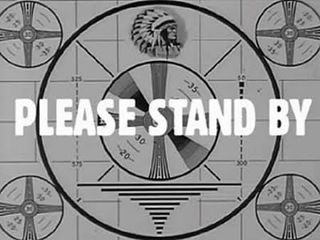
Someone is being replaced and the employer doesn't want the employees to know about it.
When the company is growing, the owner, president, or someone else may know they need to hire but haven't initiated the process. They may not have had the time. They may not quite have the budget. They may not want to go through the hassle of advertising and interviewing. So while the need is real, the job itself remains hidden inside the hiring manager's head.
When someone quits, managers will first decide if they can eliminate the job, or combine it with another position. Needing a new person, they will look inside their organization to see whom they can promote into the role. If they can't find anyone they'll likely ask their co-workers for referrals. If that doesn't work, depending on the size of the company they may opt to run an ad through HR, or hire a head-hunter.
Companies will contact a head-hunter when secrecy is required because "loose-lips-sink-ships" and the recruiter can conduct a search without anyone ever knowing.
In all of these cases, the job remains hidden to the outside world for weeks if not months. Hence the term "hidden" job-market.
The Success Strategy
The only way for you to access the hidden job-market successfully is to reach out to the hiring managers directly before they opt to go the advertising or HR route OR ask their buddies for referrals. The hidden job-market is your private laboratory to test out the best methods for finding your dream job. Now let's look at two of the Top 10 Strategies Successful Job Hunters use to access the hidden job market.
Phase I
Job Search Strategy # 1 – Targeted Research
One quick way to discover new opportunities is by doing structured search engine queries. And it's fairly easy to do. Here's how to do targeted research, step by step:
Step #1
Develop a target list of companies you want to work for. That list of companies is your baseline query for your search. Now, there are two easy ways to get the list.
Google helps you Network with the Newly Departed
Below is an example using Google.com in which you want to work in advertising in New York City.
1. When you do targeted research, generally you concentrate on an industry or a geographic preference (in this case, New York City). Substitute your city for your search.
2. You need to find the names of all the advertising companies in New York. There are easy ways to do this using the Net. Go to Google. www.google.com and type the following words in the "advanced" option box in Google. The search string shown below instructs Google to search for a directory of advertising firms in New York or a conference on advertising held in New York. We want this list to garner leads for companies.

Your text needs to be filled in like that in the picture above.
My search returned many hits including one for AD:TECH "The Event for Interactive Marketing". This is a conference held in New York for the Advertising industry. There were also hits for directories of advertising companies in New York, complete with web site addresses, phone numbers, and profiles of the owners.
LinkedIn helps you Network with the Newly Departed
With LinkedIN the same process looks like this:
Step #2 Find People Who Can Hire You
Once you have a target list of companies to work with, you need to find out who the people are in those companies that can actually hire you. A good headhunter would pick up the telephone. You might not be so inclined, so here's another way to accomplish your objective.
Go to each company's web site OR go through the company's corporate profile in LinkedIn and gather the names of the people who can say yes. Those people are the executives not the human resource people – they can only say NO! unless you're a human resources professional.
If you're lucky, every web site will identify their senior executives, including names, titles, phone numbers, career summaries and sometimes email and photos! Web information should be up-to-the-minute accurate, but I would call the receptionist and confirm it. Same for using LinkedIn. It's faster but you really should phone and confirm.
For this example I'm looking for a sales position but it could just as easily be admin, operations, legal, accounting, shipping, etc. But I'm looking for a sales job so therefore I'll seek to locate or research the VP of Sales, VP Sales & Marketing, VP Marketing or General Manager. You would focus your research on the functional areas of interest for your search.
If you're experiencing difficulty finding names on the site, then go back to Google's advanced search box and type in the company name in the first box and (Vice President Sales Marketing Director)in the third box. By-the-way, you don't need to place the words in brackets and don't put in any commas or punctuation. LinkedIn you should see them immediately if you have more than 500 connections. If you don't have more than500 connections on LinkedIn get them or get used to using Google.
This search string will bring you:
All the people who are, or have ever been, VPs OR President OR Directors of Sales and/or Marketing for the company you choose. {In this case we chose Ogilvie & Mather }
The resumes of a whole pile of people from that company whom you may be able to phone to coax information from them.
Once you have the name of the individual who is one rung up the ladder from the job you want – or in a recession – at the executive level - you need to process their name through Google again. This time you put their first and last name in the first box and the company name in the third box.
This will produce a list of press releases, and news articles in which they are mentioned, as well as conferences they've attended. Read an article or two and clip something memorable to use in your NarrowCast letter. If you can, go on LinkedIn and see what other people have provide testimonials and what they have to say.
When you send them them your information pack {cover leter and guerrilla resume} you'll be able to say. "I read your article in… about… which prompted me to write." Very powerful but what comes next is even more so..
Stop – that's Phase 1
Phase 2 requires you to Network with the Newly Departed
Okay so you've found people who worked at your target companies before — now you need to call them on the telephone, and get information about:
The person you are targeting {the Director or VP who runs the department you want to work in NOT the HR person NOR your potential boss – get this wrong and you've wasted your time!!!!!!]
The department the person runs
The company
Then what do you do?
Pick up the phone and say,
"Hi, my name is David Perry and I just read your résumé and I want to ask you a couple of questions."
What is the person on the other end of the phone thinking?
"Ooh, it's a recruiter with a job for me." Don't set them straight right away. The whole script is in the book.
You say,
"Here's why I'm calling because what I want to know, and I know you used to work there, I just want to ask you a couple of quick questions."
You start to build your knowledge about what the issues are with that company and figure out what you can solve. After you've done that with two or three people inside each company you have a very clear understanding of what their issues are so when you do your Guerilla Résumé, or when you do your Guerilla Cover Letter I want you to include only the stuff that you know is going to hit that person in the head.
Either you will get a referral with your second attempt, or the person may decide to answer your questions after all. Someone who had a good experience at the company will answer your questions without hesitation. If it was a bad experience, the person may tell you as well, but it's unlikely. If you don't get anywhere, move on to the next person on your list.
Here are some of the 40+ questions you should ask to get a complete – the rest are detailed in Guerrilla Marketing for Job Hunters 3.0, as is the complete 'script' you should follow.
About the Potential Boss
1. Did you work directly for [insert name of potential boss]?
—If the people you question did not work directly for the person, they may not be able to answer the questions 100 percent accurately, but their feedback may still be of value.
2. How long?
—Longer is better.
3. What is [insert name] like?
—What they mention first will be a dominant characteristic. You may need to push a bit to get the response.
4. What kind of person is [insert name]?
5. What kind of manager is he?
6. What does this manager look for in an employee?
—How does your experience compare to that of the people they normally hire?
7. How is [insert name] positioned in the company?
—This is a crucial question to confirm that you are targeting the right person.
8. Is [insert name] on the way up or down?
9. Does he have the ear of the president or owner?
—You need to know whether this person has the capability to hire you and can get the president to sign off.
Your All-Important Last Question
"If I decide to talk with them, can I say I was speaking with you?"
(1) If your questions with the former employee result in positive answers, that employee's name may help you later in securing a meeting with the hiring manager;
(2) the former employee may just phone his old boss and tell him about all the background due diligence you're doing on the company. That's a great thing.
Expect results! With a few minor variations, this is exactly how headhunters network to find candidates.
Ask whatever you think is important for you to know before contacting the next person. You will be amazed by how much you will learn. Further you may be stunned by what people will disclose about former employers—if you just take the initiative to ask.
The competitive intelligence you gather is valuable. Now you can assess how your accomplishments fit with the employer's needs. After doing three to four of these interviews, you'll have the inside track. You will be able to assess which of your accomplishments might be of most interest to the employer.
When you approach the company, you will know far more than any other job-hunter before you've even had your first interview. You might be able to decide if it's even worth working there. How powerful is that?
That's how you network in today's economy.
---------------------------------------------------------------------------
Top 10 Reasons the Occupy Wall Street Protestors Can't Find a Job
# 10 - You're Gulliable
# 9 - You're Invissible
# 8 - You're Irrelevant
November 15, 2011
Job Search sabotage: How to clear outthe roadbloacks that are holding you back
I just came back from the gym and I'm all pumped up [pun intended]. I had a breakthrough day on the bench press and it's directly relevant to job hunting. I practice what I preach in all areas of my life yet sometimes I erect barriers to success subconsciously. A few months ago I finally stopped talking to myself [I'm lonely what can I tell you] about how I should join a gym and just did it. In high school [late 70's] I was somewhat of a body builder, primarily because I'd survived 4 heart operations and my doctors and father told me I couldn't participate in sports [or have sex] --- ever! And I wanted to know for myself if that was true so I started working out to increase my stamina.
Anyway, I've been going to the gym religiously for two months now every M-W-F. I've stuck with a regime designed to build stamina and not muscle mass so I've increased my sets of 15 reps @ 120 lbs from 2 -3 -4 sets. Well this morning just for fun I decided to see if I could actually bench-press 150 lbs. As a 18 year old kid of 125 lbs I could lift 260. That was the most I ever did when I was in my best shape. I didn't think I could but to my surprise it rose easily off my chest into the air, as did 180 then 200 then 220 and finally 260. 300lbs was beyond my capacity. It was electric!
Perhaps it's silly, but I haven't felt that jazzed in ages!!!
So I started to reflect on where I'd done that in my business career lately. A few minutes ago I just cleared my desk top [into a box] and I'm setting my sites on new mountain peaks – specifically clients I want and business goals which others have previously told me where impossible. [Point of fact when I began writing my first book colleagues told me I'd never finish and no one would read it. Now I'm on my third [I swapped out that group of colleagues] and I still have detractors]. It seems the do gooders never cease.
How about you? What's getting in your own way? Have your friends and colleagues gently encouraged you not to think too big? Not to go after that new job too hard. They don't want to see you crash. Funny how sometimes people encourage you to think big while indirectly discouraging you from acting. Don't listen to them. Go after what you want …. Sometimes it's just best to not tell anybody else until you're finished.
Compliments of David E Perry and Kevin Donlin. For more creative job search tactics, go to the Guerrilla Marketing for job hunters blog and download the free audio CD.
November 14, 2011
How to use a Case study to land a job
Do a case study on a project which showcases your skills. This could be as simple as a new coveted client you sold, or as complex as a new product you helped introduce to the market.
Send the case study to firms you know have similar needs for the skills you emphasized in the case study. Not only do you get to showcase your writing, as well as your research and analysis skills, it demonstrates your business acumen too. For example: Did you establish an innovative compensation program for resellers that increased sales and decreased spoilage or returns? This is a big deal in retail, where 90% of profits are lost due to returns.
Chose an example that builds your credibility with your targeted employers.
Explain why you did what you did and what the short and long term effects were.
Results which would be of interest to a potential employer include: increased efficiencies, new marketing techniques, new or different distribution channels.
Ideas that would be good for competitive analysis include:
sales/marketing: distribution channels;
manufacturing: the use of just-in-time techniques; and
operations: ERP systems
How to answer interview question: 'Why should we hire you?"
Yesterday I experienced one of those interview moments from hell. Great candidate. Great Company. Horrible interview. Ever watch some one really blow it? I mean become so tongue-tied and scattered in their thoughts and presentation that you're actually embarrassed for the guy? That was my experience yesterday. It will cost this candidate a terrific six-figure Job. Don't let this happen to you.
The candidate was caught flat footed when my client asked the following most basic of questions: "Jeff can you map your skills and experience to our opportunity and tell me how you would manage the growth of a growing sales force". One shot - right through the head. It was over in 30 seconds.
Now the interview went on for an hour but it was clear the candidate was road kill. He'd missed his opportunity. So, as a well trained client of mine, the CEO asked the question again in around about way – twice – just to be sure it wasn't us. A half-baked answer was all we got. Interview over the candidate called me last night to see how it went. I was blunt. I told the candidate the answer to the CEO's question in less than 2 minutes, perfectly lining up his experience and skills – as I had to the CEO before setting up this meeting. To which the candidate said, "that's what I said". I quickly pointed out that it indeed was nothing like what he had said. Which he sheepishly agreed with.
It's your responsibility as a candidate to glean as much information as you need to about the job and "rehearse" your presentation.
Compliments of David E Perry and Kevin Donlin. For more creative job search tactics, go to the Guerrilla Marketing for job hunters blog and download the free audio CD.


